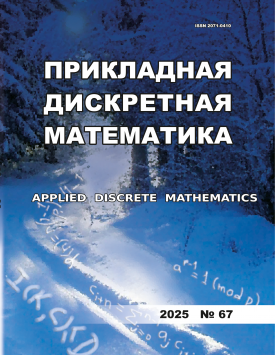We provide theoretical and experimental analysis of the computational complexity of one scheduling problem arising in computer systems and applications. The feature of the statement is the parallelization of operations and resource-dependent durations of operations. Here the processor speed affects the duration of operations and power consumption. For each operation the number of required processors is given. The criterion is the minimization of the maximum lateness under the given energy budget. We prove that the problem is NP-hard using the polynomial reduction from the well-known 3-Partition problem and constructing non-idle instances. An approximate algorithm with polynomial running time is proposed. The algorithm consists of reducing the two-processor problem to the single-processor one. A convex program is proposed for solving the single-processor problem. We investigate the block properties of the solutions generated by the algorithm and show that their objective value is at most doubled optimum maximum lateness plus the maximal due date. The experimental results show the applicability of the proposed algorithm. We construct a series of instances in which the relative deviation from the lower bound is less than 15%. We also experimentally identify a tendency in decreasing the relative deviation when the number of fully parallelizable operations increases. The theoretical analysis guarantees that the problem is polynomially solvable when all operations are fully parallelizable.
Download file
Counter downloads: 24
- Title Constructive algorithms for the scheduling problem on two processors with the maximum time offset criterion taking into account parallelization and energy consumption
- Headline Constructive algorithms for the scheduling problem on two processors with the maximum time offset criterion taking into account parallelization and energy consumption
- Publesher
Tomsk State University
- Issue Prikladnaya Diskretnaya Matematika - Applied Discrete Mathematics 67
- Date:
- DOI 10.17223/20710410/67/7
Keywords
schedule, resource, algorithm, NP-hardnessAuthors
References
Drozdowski M. Scheduling for Parallel Processing. Dordrecht: Springer, 2009. 386 p.
Сервах В. В. Эффективно-разрешимый случай задачи календарного планирования с возобновимыми ресурсами // Дискретн. анализ и исслед. опер. 2000. Оер. 2. Т. 7. №1. С. 75-82.
Коваленко Ю. В. О задаче календарного планирования с возобновимым ресурсом // Автомат. и телемех. 2012. №6. C. 140-153.
Goncharov E. N. An improved genetic algorithm for the resource-constrained project scheduling problem // N. Olenev, Yu. Evtushenko, M. Jacimovic, et al. (eds). Advances in Optimization and Applications. Springer, Cham, 2022. P.35-47.
Zhuravlev S., Blagodurov S., and Fedorova A. Addressing shared resource contention in multicore processors via scheduling // Comput. Archit. News. 2010. V. 38. No. 1. P. 129-142.
Еремеев А. В., Сахно М. Ю. Построение расписания для многоядерного процессора с учетом взаимного влияния работ // Выч. мет. программирование. 2023. Т. 24. №1. С. 115-126.
Kononov A. and Kovalenko Y. On speed scaling scheduling of parallel jobs with preemption // LNCS. 2016. V.9869. P. 309-321.
Kononov A. and Zakharova Y. Speed scaling scheduling of multiprocessor jobs with energy constraint and total completion time criterion // Intern. J. Artif.Intell. 2023. V. 21. No. 2. P. 109-129.
Gerards M. E. T., Hurink J. L., and Holzenspies P. K. F. A survey of offline algorithms for energy minimization under deadline constraints // J. Scheduling. 2016. V. 19. P. 3-19.
Shabtay D. and Kaspi M. Parallel machine scheduling with a convex resource consumption function // Europ. J. Oper. Res. 2006. V. 173. No. 1. P.92-107.
https://www2.informatik.uni-osnabrueck.de/knust/class/- Complexity Results for Scheduling Problems. 2024.
Lee C.-Y. and Cai X. Scheduling one and two-processor tasks on two parallel processors // IIE Trans. 1999. V.31. P.445-455.
Lenstra J.K., Rinnooy Kan A.H.G., and Brucker P.Complexity of machine scheduling problems // Ann. Discrete Math. 1977. V. 1. P.343-362.
Grotschel M., Lovasz L., and Schrijver A. Geometric Algorithms and Combinatorial Optimizations. Heidelberg: Springer, 2009. 332 p.
Garey M. and Johnson D.Computers and Intractability. A Guide to the Theory of NP-completeness. N.Y.: W. H. Freeman and Company, 1979. 338 p.

Constructive algorithms for the scheduling problem on two processors with the maximum time offset criterion taking into account parallelization and energy consumption | Prikladnaya Diskretnaya Matematika - Applied Discrete Mathematics. 2025. № 67. DOI: 10.17223/20710410/67/7
Download full-text version
Counter downloads: 265